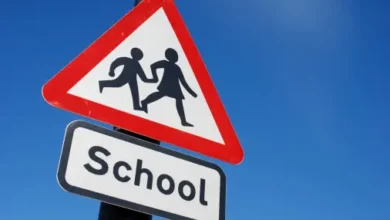IB English Language and Literature HL in Education

In today’s rapidly evolving environment, the ability to engage in critical thinking has become crucial. It extends beyond simple problem-solving; it involves a deep understanding of issues from various perspectives and the capacity to make well-informed decisions. Educational frameworks have adapted, placing a significant focus on critical thinking as a core aspect of learning. By equipping students with these essential skills, educators are preparing them to handle the complexities they will face in real-world scenarios where effective decision-making is vital.
Critical thinking in educational settings goes beyond mere rote memorization. It entails the analysis of information, evaluation of evidence, and formulation of coherent arguments. This approach encourages students to challenge preconceived notions and consider diverse perspectives. In an era brimming with information, where facts often collide, the ability to discern trustworthy sources and make sound decisions becomes invaluable.
Moreover, critical thinking acts as a catalyst for creativity and innovation. Encouraging students to explore beyond conventional boundaries enables educators to cultivate an environment that embraces novel ideas and solutions. This trait is particularly crucial in our dynamic world where adaptability and inventive strategies are key to success. As learners adopt an open-minded approach paired with a discerning perspective, they are better equipped to tackle future challenges.
Language and Literature as Tools for Analysis
Exploring language and literature opens a wealth of critical thinking skills. As students analyze various texts, they not only decode meanings but also uncover underlying themes and grasp the nuances of language. This intellectual exercise sharpens their ability to deconstruct complex ideas and construct persuasive arguments. Literature provides a glimpse into a wide range of human experiences, enriching students’ understanding with its vivid depiction of emotions and cultural insights.
Language serves as our primary means for sharing ideas and expressing thoughts. When students master language, they gain the power to articulate their perspectives with clarity and conviction. This mastery further enables them to embrace diverse viewpoints, fostering empathy and a broader comprehension in the process. In today’s interconnected world, effective communication across cultural boundaries is essential.
At the intersection of language and literature, students are prompted to scrutinize messages within texts, whether through novels, poems, or articles. Each piece of writing not only reflects a specific viewpoint but also serves an intent. Engaging with these elements fosters a habit of challenging prevailing assumptions and appreciating the broader context, a crucial skill in navigating our information-rich age.
Image source: https://www.freepik.com/free-photo/front-view-stacked-books-graduation-cap-open-book-education-day_21745450.htm
Exploring IB English Language and Literature HL
The IB English Language and Literature HL course is well-regarded for its comprehensive approach to cultivating critical thinking skills. This program compels students to explore a broad spectrum of texts, from time-honored classics to contemporary media. As they dissect these materials, students refine their interpretative skills and enhance their ability to evaluate diverse arguments. The curriculum’s commitment to varied perspectives invites learners to embrace multiple viewpoints, enriching their global awareness.
A distinctive feature of the IB English Language and Literature HL course is its robust assessment strategy. Students demonstrate their analytical prowess and argumentative skills through a series of assignments and projects. This practical engagement ensures that learning extends beyond mere knowledge acquisition, encouraging students to apply their insights in meaningful ways.
Additionally, the course examines the critical role language plays within society. Students explore how language shapes our views and influences our actions, gaining insight into its profound impact. Such understanding is essential in a world where language is not just a tool for communication but also for persuasion, education, and even manipulation.
Real-World Impact of Critical Thinking
The ripple effects of critical thinking extend well beyond academic settings. Those who master these skills emerge as adaptable professionals in diverse fields from business to science, and even the arts. In the ever-changing field of professional life, critical thinking enhances one’s ability to identify problems, devise innovative solutions, and execute decisions with precision. Employers highly value these competencies, recognizing that adaptability and adept problem-solving are crucial in a rapidly evolving global landscape.
Beyond career advancement, critical thinking greatly enriches personal development. It prompts individuals to examine established beliefs and embrace multiple perspectives, thereby fostering empathy and a broader understanding. This skill set is essential in our diverse and interconnected world where successful collaboration and effective communication are key.
Moreover, critical thinking enables individuals to take an active role in society as discerning citizens. In an era inundated with information, where facts often blur with fiction, the ability to identify reliable sources and make judicious choices is crucial. Developing these skills ensures that individuals are prepared to thoughtfully engage with important issues ranging from political discourse to social justice initiatives and environmental concerns.
Navigating the Hurdles of Teaching Critical Thinking
Imparting critical thinking skills is filled with challenges. Teachers often contend with issues like oversized classes and limited resources, which impede their ability to provide personalized support and guidance. Additionally, the diverse backgrounds and abilities of students add complexity to this educational endeavor.
Project-based learning is a revolutionary strategy in this context. This method immerses students in real-world challenges that require research, analysis, and creative problem-solving. Engaging in such projects helps students connect more deeply with the content while seeing its relevance in their own experiences. It also offers educators a flexible framework to tailor lessons for varied learning needs.
Implementing an open-dialogue classroom environment is another effective tactic. This atmosphere fosters a culture of inquiry and mutual exploration, empowering students to express their thoughts boldly and scrutinize established norms. Beyond refining critical thinking faculties, this approach cultivates a communal spirit and fosters a sense of belonging among learners.
Empowering Students for the Future
Critical thinking is a key skill, pivotal in preparing students for a successful journey through both their personal and professional lives. As they master the art of scrutinizing information, evaluating evidence, and crafting persuasive arguments, students become adept at navigating the intricacies of today’s world. Recognizing this, educational frameworks worldwide are intensifying their focus on nurturing these abilities to shape well-informed and conscientious individuals.
For educators, the task lies in creating an environment that not only promotes critical thinking but also inspires students to engage in inquiry and discovery. Through innovative teaching methodologies and leveraging technological advancements, teachers have unique opportunities to enhance student capabilities essential for thriving in our ever-changing world.
Ultimately, education aims to equip students to act as engaged and enlightened citizens poised to contribute positively worldwide. By emphasizing the development of critical thinking, educators are laying down foundational mindsets necessary for flourishing in a continuously transforming landscape. Looking ahead, the role of critical thinking within educational paradigms is set to expand further, influencing future leaders and pioneers.





